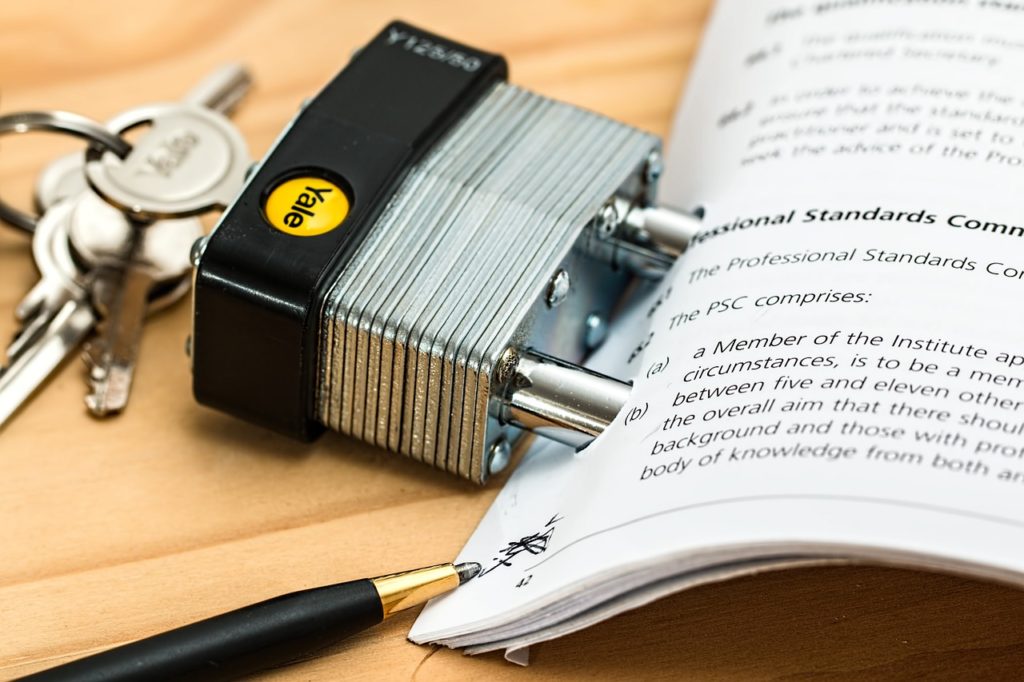Table of Contents
- Introduction
- The Role of a Family Lawyer
- Understanding Aggressiveness in Legal Practice
- Pros and Cons of Hiring an Aggressive Family Law Attorney
- Ethical Considerations
- Alternatives to Aggressive Legal Representation
- Recommendations
- Conclusion
Navigating Family Law: Understanding the Role of the Aggressive Family Law Attorney
Introduction
Family law is multifaceted. It encompasses various legal matters such as divorce, child custody, spousal support, and domestic violence. Negotiating through these issues often involves emotionally charged situations and significant life transitions. During such turbulent times, individuals rely on the guidance and representation of family law attorneys. Among them, the role of an aggressive family law attorney shines prominently, offering assertive advocacy and unwavering support to clients facing complex and challenging circumstances.
Family legal matters are inherently personal and deeply impactful, often involving intricate relationships and profound emotions. The decision to seek legal assistance in family law matters reflects the recognition of the complexities involved and the desire for competent guidance through the legal process. In this context, the role of a family lawyer is indispensable, serving as an advocate and counselor for clients navigating through tumultuous waters.
Navigating family law matters requires individuals to confront a myriad of legal, emotional, and financial challenges. From navigating divorce proceedings to resolving child custody disputes, each step in the legal process can be filled with uncertainty and complexity. The expertise and support of a skilled family law attorney provide individuals with the guidance and reassurance they need to navigate these challenges effectively. By offering compassionate counsel and strategic advocacy, family lawyers empower their clients to make informed decisions and pursue favorable outcomes in their cases.
The Role of a Family Lawyer
Family lawyers serve as invaluable resources during tumultuous times, providing legal advice, representation, and strategic counsel to clients grappling with family-related legal matters. From navigating divorce proceedings to resolving disputes over child custody and property division, family lawyers play a pivotal role in safeguarding their clients’ rights and interests. An aggressive family law attorney embodies determination and resilience, employing proactive strategies to advocate for their clients effectively.
Within the realm of family law, attorneys wear multiple hats as legal advisors, negotiators, advocates, and mediators. Their expertise extends beyond courtroom litigation to encompass alternative dispute resolution methods and collaborative approaches. By offering comprehensive support and guidance, family lawyers help clients navigate the complexities of legal proceedings with confidence and clarity.
The role of a family lawyer extends beyond the confines of the courtroom. In addition to providing legal representation, family lawyers serve as confidants and advisors, offering emotional support and practical guidance to clients facing challenging circumstances. They take the time to understand their clients’ unique needs and concerns, developing personalized strategies to address their legal issues effectively. By fostering open communication and trust, family lawyers build strong relationships with their clients, empowering them to navigate through difficult times with resilience and determination.
Understanding Aggressiveness in Legal Practice
Aggressiveness in family law practice is not synonymous with hostility or confrontation; rather, it denotes a proactive and assertive approach to advocating for clients’ interests. Aggressive family law attorneys leverage their legal acumen and advocacy skills to pursue favorable outcomes for their clients. Through assertive negotiation tactics and strategic litigation strategies, they strive to protect their clients’ rights and achieve optimal results.
In the realm of family law, aggressiveness involves taking decisive action to address clients’ concerns and safeguard their interests. Whether advocating for equitable distribution of marital assets or asserting parental rights in child custody disputes, aggressive attorneys employ a range of tactics to advance their clients’ objectives. Their tenacity and determination enable them to navigate complex legal terrain effectively and secure favorable resolutions.
Aggressiveness in legal practice requires a combination of skills, including legal knowledge, strategic thinking, and effective communication. Aggressive family law attorneys are adept at analyzing legal issues, identifying strengths and weaknesses in their clients’ cases, and developing compelling arguments to support their positions. They approach legal disputes with confidence and determination, advocating vigorously for their clients’ rights and interests.
Pros and Cons of Hiring the Aggressive Family Law Attorney

The decision to engage an aggressive family law attorney entails weighing the potential benefits and drawbacks. On one hand, aggressive representation may lead to favorable outcomes for clients, including equitable settlements, custody arrangements, and protection of legal rights. Aggressive attorneys possess the skills and determination to advocate zealously on behalf of their clients, often achieving results that align with their clients’ goals.
However, aggressive representation may also pose challenges, particularly in cases where tensions escalate and conflicts intensify. Prolonged litigation and adversarial proceedings can strain relationships between parties and exacerbate emotional distress. It is essential for clients to assess the potential risks and benefits of hiring an aggressive family law attorney and explore alternative avenues for dispute resolution where appropriate.
Despite its potential drawbacks, aggressive representation can be effective in achieving favorable outcomes in family law matters. Aggressive attorneys are skilled negotiators and litigators who are not afraid to assert their clients’ interests in court. Their assertiveness and determination can help level the playing field in contentious legal disputes and ensure that clients’ rights are protected throughout the legal process.
Ethical Considerations and the Aggressive Family Law Attorney
Ethical considerations are paramount in the practice of family law, regardless of the attorney’s approach. Aggressive family law attorneys are held to the highest standards of professional conduct, upholding principles of integrity, honesty, and respect in their interactions with clients, colleagues, and adversaries. While zealous advocacy is encouraged, it must be tempered by a commitment to ethical principles and legal norms.
Aggressive representation should never compromise the integrity of the legal process or undermine the dignity of opposing parties. Family law attorneys have a duty to uphold the rule of law and promote the fair administration of justice. This necessitates conducting themselves with professionalism, civility, and integrity at all times, even in the face of contentious litigation.
Ethical considerations permeate every aspect of legal practice, guiding attorneys’ conduct and shaping their interactions with clients, opposing counsel, and the judiciary. Family law attorneys must adhere to ethical rules and guidelines established by professional organizations and regulatory authorities, ensuring that their actions align with principles of fairness, justice, and equity.
Alternatives to Aggressive Legal Representation
While aggressive legal representation may be appropriate in certain circumstances, it is not always the most effective approach to resolving family law disputes. Alternative methods of dispute resolution, such as mediation, collaborative law, and negotiation, offer opportunities for parties to reach mutually acceptable agreements outside of the courtroom.
Mediation provides a structured forum for parties to engage in facilitated discussions and negotiate settlements with the assistance of a neutral mediator. Collaborative law encourages cooperative problem-solving and fosters open communication between parties and their attorneys. Negotiation allows parties to explore common ground and identify areas of compromise, with the goal of reaching mutually beneficial resolutions.
These alternative approaches to dispute resolution prioritize cooperation, communication, and compromise, helping parties avoid protracted litigation and mitigate the emotional and financial costs associated with adversarial proceedings. By embracing alternative methods of dispute resolution, families can achieve amicable resolutions that preserve relationships and promote healing.
Alternative dispute resolution methods offer numerous benefits, including flexibility, confidentiality, and efficiency. They empower parties to maintain control over the resolution process and collaborate in crafting creative solutions that address their unique needs and interests. By fostering open communication and collaboration, alternative dispute resolution methods promote constructive dialogue and enable parties to move forward with clarity and closure.
Recommendations

- Referrals and Recommendations: Start by asking friends, family members, or colleagues who have gone through similar family law matters for recommendations. Personal referrals often provide valuable insights into the effectiveness and style of an attorney.
- Online Directories and Reviews: Utilize online resources such as legal directories and review websites to research attorneys in your area. Websites like Avvo, FindLaw, and Martindale-Hubbell and this site, www.divorceddadsmagazine.com, offer directories where you can search for family law attorneys and read client reviews and ratings.
- Bar Associations: Contact your local or state bar association for referrals to reputable family law attorneys. Bar associations often have referral services that can match you with attorneys based on your specific needs and preferences.
- Consultations: Schedule initial consultations with multiple attorneys to discuss your case and evaluate their approach. During the consultation, inquire about the attorney’s experience handling cases similar to yours, their litigation style, and their willingness to pursue aggressive strategies when necessary.
- Ask About Track Record: Inquire about the attorney’s track record of success in handling family law cases. Ask for examples of cases similar to yours that the attorney has handled and the outcomes achieved. A proven track record of successful outcomes can indicate the attorney’s effectiveness in advocating for their clients.
- Assess Communication Style: Pay attention to the attorney’s communication style and responsiveness during the consultation. You want an attorney who listens attentively to your concerns, communicates clearly and effectively, and keeps you informed about developments in your case.
- Evaluate Compatibility: Consider the attorney’s personality and whether you feel comfortable working with them. Building a strong attorney-client relationship based on trust and mutual respect is essential, particularly in emotionally charged family law matters.
- Consider Specialization: Look for attorneys who specialize in family law and have extensive experience handling cases in this practice area. Specialized expertise allows attorneys to navigate the complexities of family law proceedings more effectively and pursue aggressive strategies tailored to your specific situation.
- Review Client Testimonials: Take the time to read client testimonials and reviews to gain insights into the experiences of past clients with the attorney. Positive testimonials can provide reassurance about the attorney’s competence and dedication to achieving favorable outcomes for their clients.
- Fee Structure: Discuss the attorney’s fee structure during the initial consultation to ensure transparency and clarity regarding legal fees and expenses. Inquire about billing practices, retainer fees, and any additional costs associated with your case.
By following these recommendations and conducting thorough research, you can find an aggressive family attorney who is well-equipped to represent your interests and advocate effectively on your behalf in family law matters.
Conclusion
In conclusion, the role of an aggressive family law attorney is multifaceted and dynamic, requiring a delicate balance of assertiveness, ethics, and professionalism. While aggressive representation can be effective in advancing clients’ interests and achieving favorable outcomes, it must be tempered by ethical considerations and a commitment to upholding the integrity of the legal profession.
Clients facing family law matters should carefully evaluate their options and consider the potential benefits and risks of hiring an aggressive attorney. Alternative methods of dispute resolution offer viable alternatives to litigation and empower parties to reach mutually acceptable agreements in a collaborative and constructive manner.
By working with skilled and experienced legal professionals, individuals can navigate the complexities of family law with confidence and clarity, knowing that their rights and interests are being safeguarded. Whether through aggressive advocacy or alternative dispute resolution, the ultimate goal remains the same: to achieve fair and equitable resolutions that serve the best interests of all parties involved.
Leave a Comment Below
How do you feel about what you’ve read? Leave a comment below if you would like to tell us about your co-parenting experience! Or if you would like to send a note, use our contact form! Thanks for reading, and come back again!










































